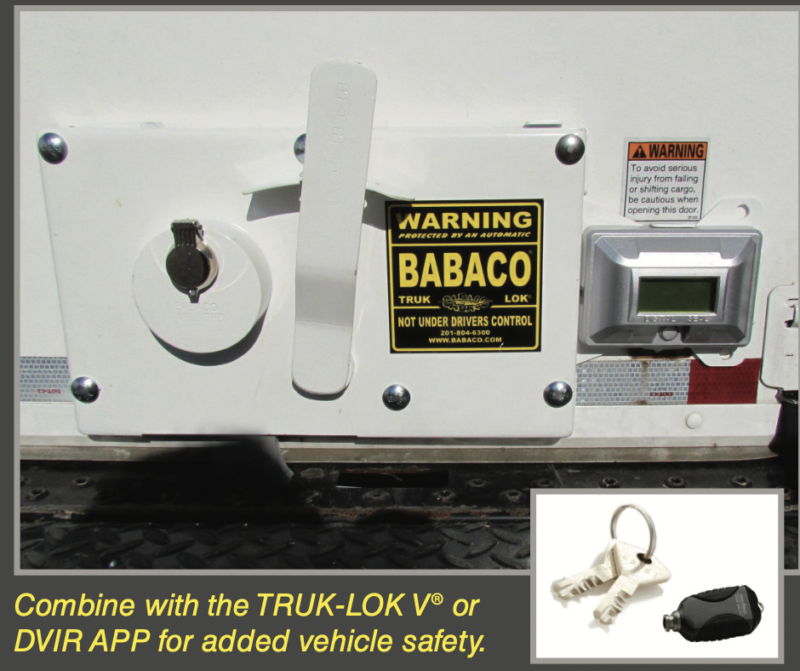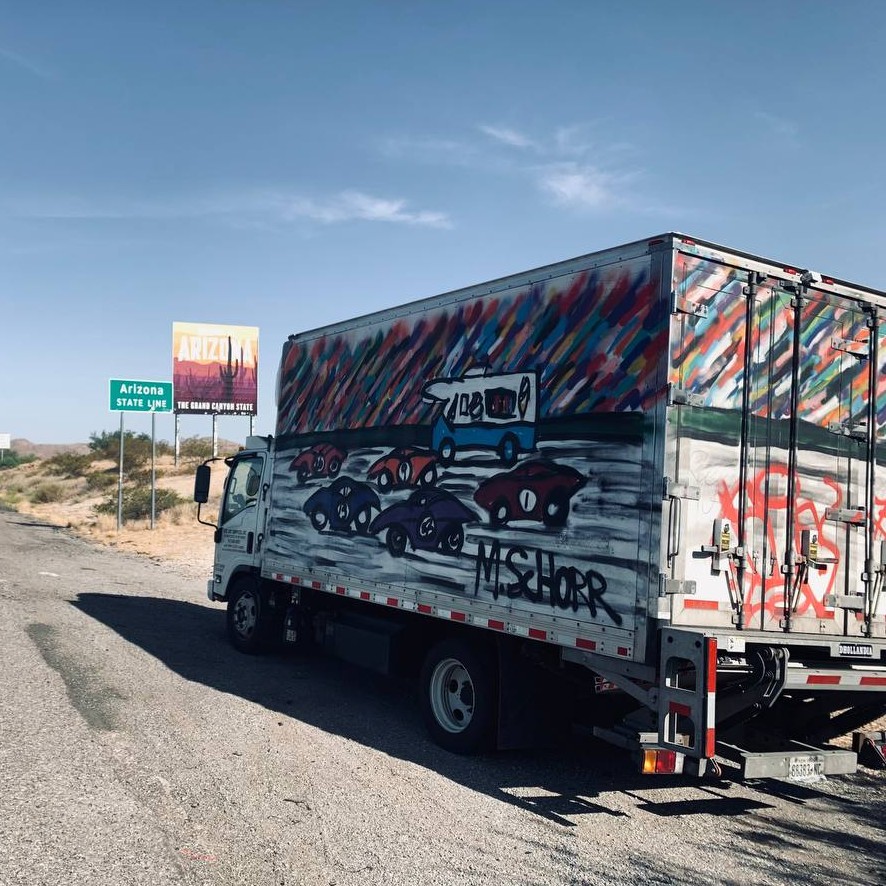Fine Art Shippers trucks are equipped with the state-of-the-art Babaco alarm system, ensuring the safety and security of the valuable items we transport. We recently had the opportunity to interview Greg Haber, the owner of the company, to discuss what sets Babaco apart from other systems and how its multiple levels of security are implemented in practice.
Babaco, an acronym for Brooklyn Automobile Burglar Alarm Company, has a rich history. It was established in 1930 by Jack Seide and the alarm's actual inventor, Izador Adis. During World War II, the company even supplied alarms for US Army trucks transporting atomic bomb research materials.
Over twenty-five years ago, Greg Haber acquired the company. With his engineering background, he has raised the standards and developed additional security products.
Ensuring Vehicle Security in Transit: An Interview with Babaco Owner
First off, what are the general features that set the Babaco alarm system apart from the competition?
Unlike other vehicle alarm systems, Babaco operates independently with its own power source, wires, and sensors. It features a separate battery that is recharged while the vehicle is in motion. One of its key characteristics is the discreet hiding of its wires, making them difficult to identify based on color codes or specific manufacturer connections. This unique design ensures continuous security, even if the factory battery is disconnected.
The Babaco system also enforces specific processes and restricts certain actions, such as leaving the truck idling during deliveries. By integrating the alarm system with the vehicle's ignition, it requires both the vehicle key and the Babaco key to start the truck.
Upon reaching their destination, drivers are prompted to disable the vehicle and turn off the engine using the Babaco key. This ensures that the vehicle cannot be operated without proper authorization. To access the cargo area, drivers must again use the Babaco key to disarm the alarm system, confirming their identity before opening the door.
Once the driver opens the door and completes their tasks, the alarm system automatically reactivates when the door is closed.

Could you provide more details on how the locking system operates?
Babaco offers a range of hardened locking systems designed for different types of doors, providing an additional layer of security. One example is the Babaco swing-out door lock, specifically designed for vehicles with this type of doors. It has a sturdy locking bar and lever mechanism, guaranteeing a secure closure and lock for the door.
With our locking system, drivers can secure the doors without the need for additional padlocks or seals, which are often overlooked or neglected. In a typical operation, once the doors are securely closed, the driver returns to the front of the vehicle. If the driver's area is also protected, they use the same key to authenticate themselves and start the vehicle.
Another crucial feature is the high-security locking keyway. Unauthorized key copies cannot be made at hardware stores or elsewhere since our company possesses a unique keyway. It is a three-dimensional design with multiple cuts at various angles, making it physically impossible to drill or pick the lock.
What about the remote control? Does it provide additional security or just make life simpler for the driver?
The remote control simplifies the driver's interaction with the security system and streamlines their routine by removing an extra step. It is specifically designed to accommodate the natural workflow of drivers and discourage attempts to bypass security measures. It serves as a driver identification tool when they approach the truck. By simply pressing a button on the remote, the driver signals that they are the authorized driver, prompting the alarm system to enter access mode. This eliminates the need for them to physically insert the key into the system and manually activate the alarm.
Babaco also offers GPS integration. How does it add to the vehicle’s protection?
If an alarm is triggered or an unauthorized entrance is detected, the system automatically sends a real-time signal to the shipping company. This allows them to promptly contact the driver or take other measures to urgently address the situation.

Digital solutions are fundamental for modern businesses that have to rely on a lot of data in their operations. You have developed the BabacoFulfillment management platform. What does it offer and how can it facilitate logistics and enhance security?
BabacoFulfillment is a customizable application that can run on various devices, eliminating the need for traditional paper bills of lading. It offers a wide range of features, including timestamps, location tracking, cameras, and real-time communication. This enables drivers to capture and document crucial information during the delivery process, such as taking pictures of packed products, sealing doors, recording truck identification, and capturing other relevant data.
All the captured information is securely stored in the cloud and accessible through an administrative portal. This allows administrators to track delivery progress, view the contents of each shipment, and monitor the condition of the goods. Digital documentation serves as historical records that can be easily retrieved and used as evidence in case of disputes or claims in the future.
BabacoFulfillment also facilitates the creation of checklists, ensuring that each step is completed before proceeding to the next. This helps standardize procedures, reduces human errors, and provides a systematic approach to the delivery process.
What changes has the Babaco alarm system undergone in the quarter of a century that you've been running the company?
We are continually updating and improving our systems. In the last decade, we have made significant advancements, transitioning from manually built systems to more efficient and reliable electronic designs. As mentioned earlier, our systems operate with their own independent power source and wiring, ensuring compatibility with various types of trucks, including diesel trucks, motor trucks, electric vehicles, and hybrids. Additionally, all our products are customizable to meet the specific needs of our clients.
One of the innovative features we have been working on is electronic keys, which can be paired with smartphones to provide authorization for specific actions, similar to the card access systems commonly used in buildings. This technology further enhances the convenience and security of our alarm systems, allowing for controlled access to vehicles.
What would you recommend to companies or individuals looking to enhance the security of their vehicles?
While we try to educate and promote proactive security practices, we recognize that many businesses in various industries tend to be reactive rather than proactive. They often allocate budgets for security measures only after experiencing serious security incidents. I would like to emphasize the importance of prevention and encourage companies to invest in security measures to avoid costly issues later on.
Interview by Inna Logunova
